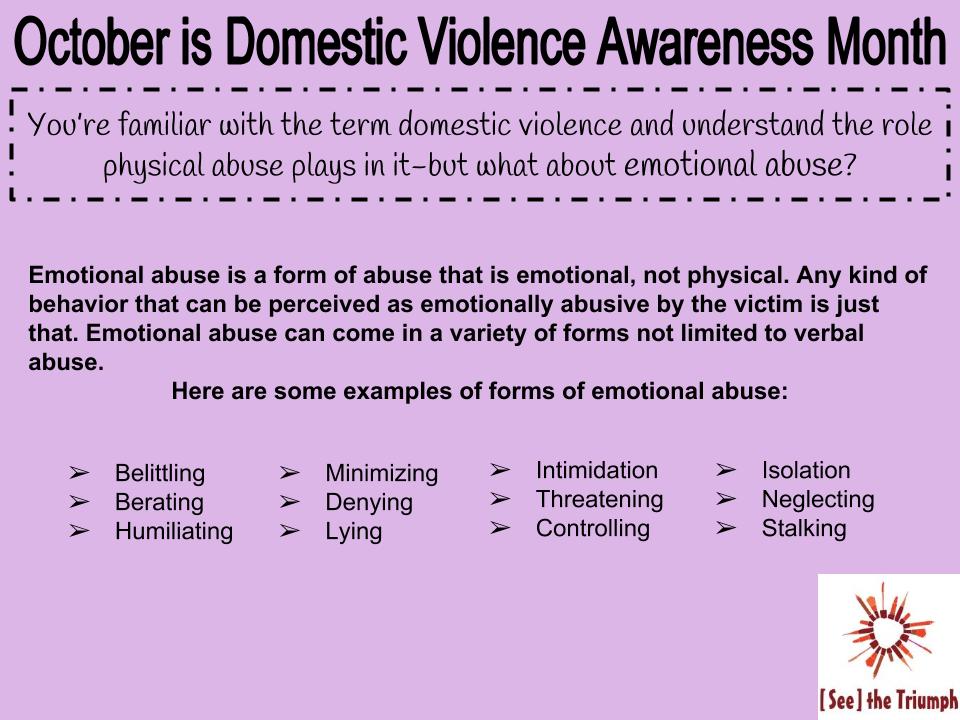|
By See the Triumph Guest Blogger, Sara Forcella
In light of October being Domestic Violence Awareness Month, See The Triumph thought that it was important to address some questions about what exactly domestic violence is. Though many people are familiar with the term domestic violence, they do not understand the complexity of the issue. Domestic violence is not only physical abuse and can be different for each person who deals with it. Domestic violence can be defined as physical, verbal, sexual or emotional abuse. The later of these forms of abuse may be confusing to understand- what exactly is emotional abuse and how do I know if it’s present in my or another’s relationship? Emotional abuse can vary depending on each relationship and abuser. Simply put, emotional abuse is a form of abuse that is emotional, not physical. Behaviors that you perceive as detrimental to your emotional well being can be forms of emotional abuse. This kind of abuse can come in a variety of forms such as: belittling, berating, humiliating, minimizing, denying, lying, intimidating, threatening, controlling, stalking, isolating and neglecting. Any or all of these actions are forms of emotional abuse. Many times emotional abuse comes in the form of verbal abuse in which an abuser tries to gain control of the relationship by breaking their partner's self-confidence and emotional wellbeing. Emotional abuse can also occur when an abuser tries to regulate his/her partner by controlling who and when they can have contact with friends, family and even members of the opposite sex. Abuser’s use this form of emotional abuse to limit their partner’s support groups and gain a sense of power over them. In some cases an abuser may neglect their partner’s emotional needs by ignoring and avoiding them. Stalking is the opposite of this extreme and is a form of emotional abuse used to terrorize and control a partner. Emotional abuse is a dense topic which can appear in many different ways within a relationship. The bottom line is that abuse is abuse, and it is never ok. Nobody deserves to be abused in any way. If you feel that you may be in an abusive relationship know that you are not alone. There are many local places you can turn to for guidance. Take some time to get familiar with local and national hotline numbers and resource centers that are created specifically for those dealing with domestic violence. Comments are closed.
|
Archives
July 2024
CategoriesAll About Intimate Partner Violence About Intimate Partner Violence Advocacy Ambassadors Children Churches College Campuses Cultural Issues Domestic Violence Awareness Month Financial Recovery How To Help A Friend Human Rights Human-rights Immigrants International Media Overcoming Past Abuse Overcoming-past-abuse Parenting Prevention Resources For Survivors Safe Relationships Following Abuse Schools Selfcare Self-care Sexual Assault Sexuality Social Justice Social-justice Stigma Supporting Survivors Survivor Quotes Survivor-quotes Survivor Stories Teen Dating Violence Trafficking Transformative-approaches |
Search by typing & pressing enter



 RSS Feed
RSS Feed